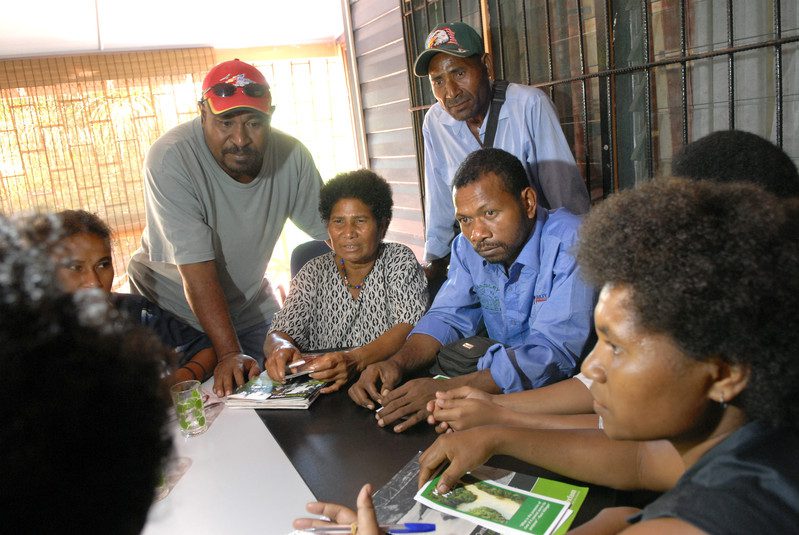Improving practice: information for companies
There’s a lot mining companies can do to make sure they don’t cause harm to people or the environment. A good start? To respect the rights of indigenous peoples and other local communities to give or deny their free, prior and informed consent. If a community says no to a mining project, companies should respect this. They should not to try to develop the mine against community wishes.
Oxfam’s research has found the majority of Australian mining companies have no clear public commitment to gain the consent of Indigenous peoples before commencing projects on their land.
Companies should also report on payments (such as taxes and royalties) made to governments, and implement anti-corruption measures.
Impact assessment
Mining companies should undertake and disclose the results of human rights and gender impact assessments. These can be part of larger social and environmental impact assessments, or standalone. The aim is to identify risks to communities and then find ways to prevent these risks from actually occurring.
Conflict zones
Mining companies that operate in conflict zones and other high risk locations need to take extra care in ensuring they do not cause any harm to local people. Companies should identify and manage risks related to:
- human rights abuses
- triggering or worsening violence and conflict
- the use of security
- bribery and corruption, and revenue transparency
Grievance mechanisms
Companies should also establish a company-based grievance mechanism. This is a formal process to prevent and resolve community concerns about a company’s performance or behaviour, as well as that of its contractors or employees. Company-based grievance mechanisms can also help establish good relationships between companies and local communities.
The role of financial institutions
Financial institutions such as banks and investment funds have significant influence on the companies they invest in. They can influence how mining companies operate, helping make sure that mining does not harm people or the environment. Oxfam’s guide to sustainable project financing explains how.
At the very least, financial institutions should undertake a thorough due diligence assessment of mining companies and the projects they are considering investing in.
This assessment should consider:
- what the project’s potential social and environmental impacts are (including gender and human rights impacts)
- if free, prior and informed consent has been given by the local indigenous people for the project
- whether the mining company is committed to revenue transparency and anti-corruption
If a particular mining project is too risky, then financial institutions should not invest in it.
Corporate accountability — key standards
Governments and companies are both accountable for ensuring that mining companies operate responsibly and that remedy is available if things go wrong. Companies must abide by national laws, international laws and best-practice standards.
Some key standards include:
- OECD Guidelines for Multinational Enterprises
- OECD Due Diligence Guidance for Responsible Supply Chains of Minerals from Conflict-Affected and High-Risk Areas
- International Finance Corporation’s Performance Standards
- United Nations Declaration on the Rights of Indigenous Peoples and ILO Convention 169
- The Voluntary Principles on Security and Human Rights
- UN “Protect, Respect and Remedy” framework for business and human rights
Links
- Oxfam Mining Symposiums
Oxfam has partnered with the Melbourne Business School to host a series of symposiums on the human rights and corruption challenges faced by the mining sector and the role of financial institutions. Read the communiqués from the 2017, 2015, 2014, 2013, 2012, 2011 and 2010 symposiums.
